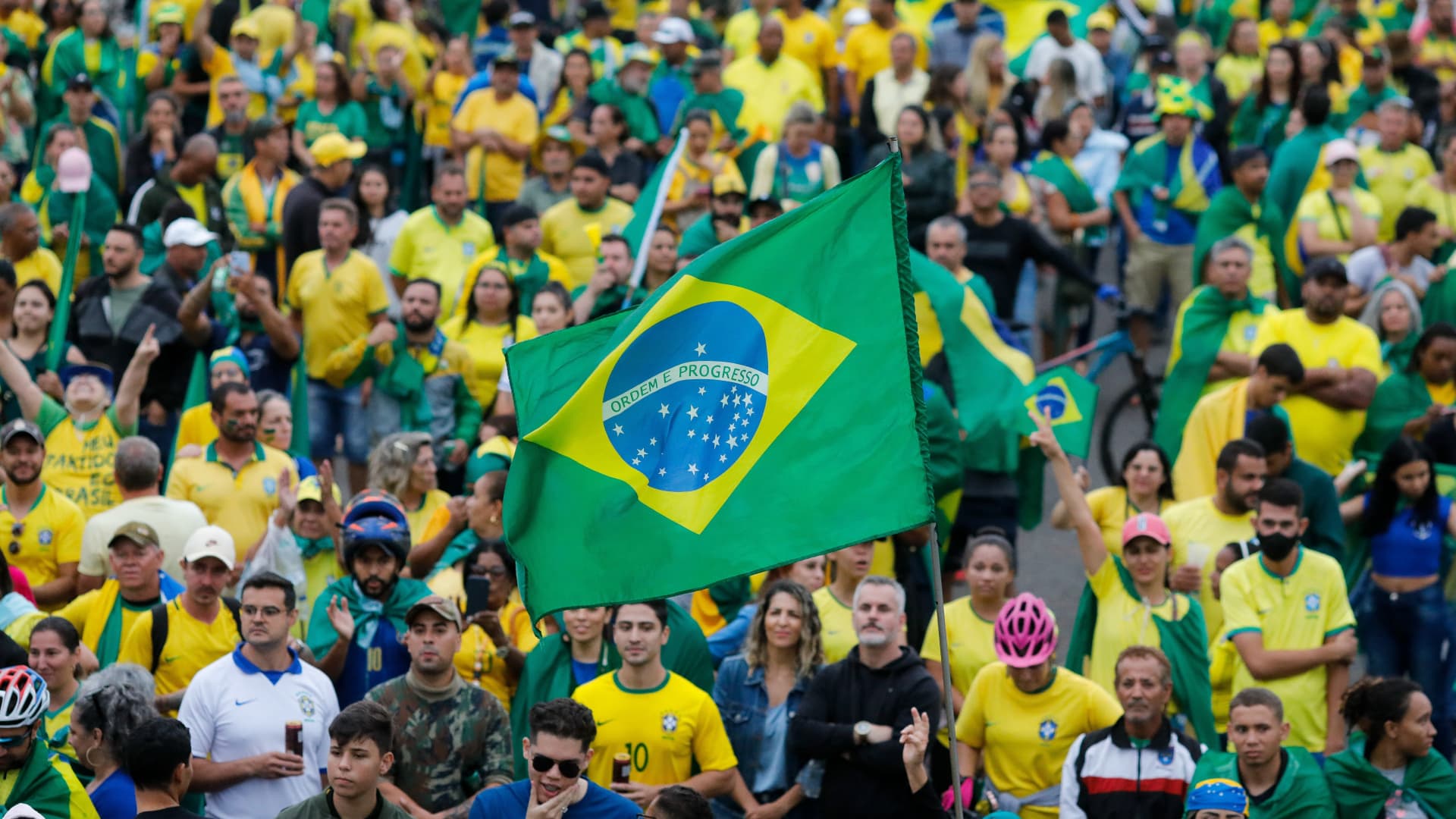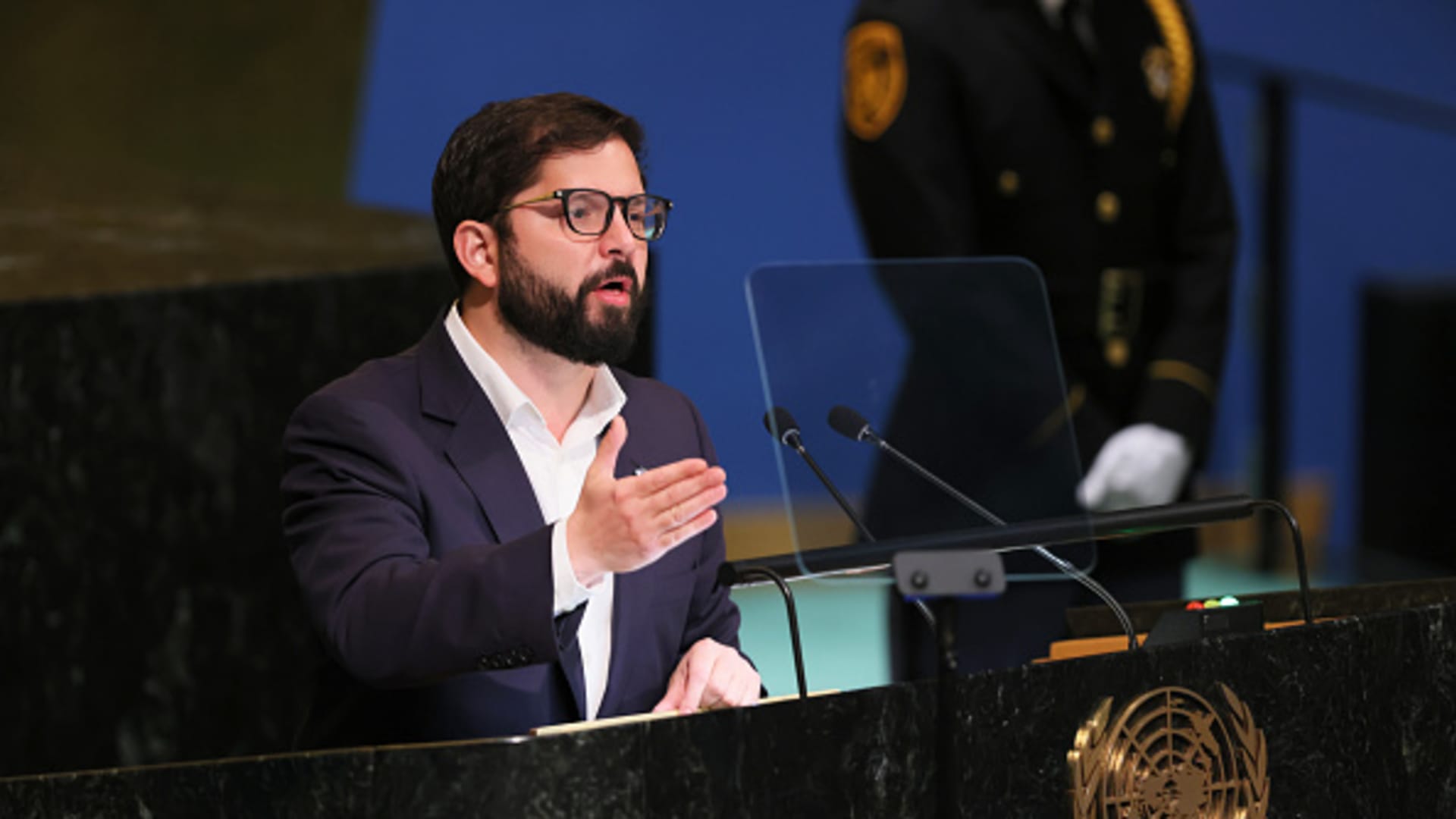
- A remarkable return to the presidency for Brazil's Luiz Inácio Lula da Silva heralds a new "pink tide" in Latin America.
- It is thought the region's latest leftist resurgence is markedly different from the one that swept into power in the 1990s, however.
- "Grand designs like the ones we saw two decades ago will likely be forced into the backseat during this new ride," Mariano Machado, principal Latin America analyst at political risk firm Verisk Maplecroft, told CNBC.
A remarkable return to the presidency for Brazil's Luiz Inácio Lula da Silva heralds a new so-called "pink tide" in Latin America, but political analysts say the latest leftist resurgence is very different from the one that swept into power in the 1990s.
WATCH ANYTIME FOR FREE
>Stream NBC10 Boston news for free, 24/7, wherever you are. |
Lula won a third presidential term late last month, securing 50.9% of the runoff vote to narrowly defeat far-right incumbent Jair Bolsonaro.
It marked an extraordinary political comeback for the 77-year-old former metalworker, who was jailed in 2017 in a sweeping graft investigation following a two-term 2003-2010 presidency. Lula was released in 2019 and his criminal convictions were later annulled, paving the way for him to seek a return to office.
Get updates on what's happening in Boston to your inbox. Sign up for our >News Headlines newsletter.
Speaking at his campaign headquarters after securing victory, Lula described his return to office as a "resurrection."
Bolsonaro, meanwhile, broke an almost two-day silence over his election defeat earlier this week but stopped short of congratulating or recognizing the victory of his rival. Bolsonaro is not expected to contest the election result.
Political analysts said Lula's victory marked the most symbolic shift in a political movement that has seen the region's right-wing governments replaced by leftist leaders.
Money Report
Left-of-center candidates have won elections in Mexico, Argentina, Bolivia, Peru and Honduras in recent years, while leftist leader Gabriel Boric secured a historic victory in Chile last year, and Gustavo Petro became Colombia's first leftist leader in June. The growing leftist bloc echoes a similar regional political shift seen two decades earlier.
"The new pink tide, in many ways, is different from the previous one," said Pedro Abramovay, executive director for Latin America and the Caribbean at Open Society Foundations, a pro-democracy group.
Social inclusion and the fight against inequalities remain at the center of the movement, Abramovay said, noting that leaders such as Colombia's Petro and Chile's Boric were putting climate, gender and racial justice issues at the forefront of their campaigns.
"Lula is a bridge between both periods," Abramovay said. "He was the prominent leader from the previous tide but has adjourned his speech to those new answers, and now it's in his hands to amplify them globally."
Abramovay said Lula's victory also "consolidates Latin America as the only democratic and progressive region in the Global South, which means Brazil will have a critical global role as a broker to deals on issues like climate and other international negotiations."
'An uncomfortable, novel position'
The swing back to leftist political parties in Latin America comes as soaring inflation and the impact of the coronavirus pandemic prompted voters to reject firmly established parties and instead favor the promises of greater social spending.
Political analysts say that while the new pink tide leaders have sufficient backing to govern, they do not appear to have the majorities required to be able to impose sweeping reforms.

"The dominant trend bringing this 'pink tide 2.0' into office is not ideology but anti-incumbency — a natural outcome of a decade of economic stagnation turbocharged by the pandemic," Mariano Machado, principal Latin America analyst at political risk firm Verisk Maplecroft, told CNBC via email.
"Sitting between a rock and a hard place, they have the votes to fend-off direct institutional challenges, but not the majorities to implement far-reaching reform — an uncomfortable, novel position for most of these political actors," Machado said.
"This is impacting the 'new generation' reaching office for the first time — like Chile's Gabriel Boric — as much as it will impact 'early bloomers' making a comeback — like Lula. As a result — and despite political alignment — regional coordination efforts will be subject to powerful, undergoing trends."

Machado said that on a domestic level, "a rowdy stage is bound to take priority, as most leaders have achieved power by pledging social policies for which they lack funding."
He added that while regional policy agreements were probable, particularly on environmental matters, "grand designs like the ones we saw two decades ago will likely be forced into the backseat during this new ride."






